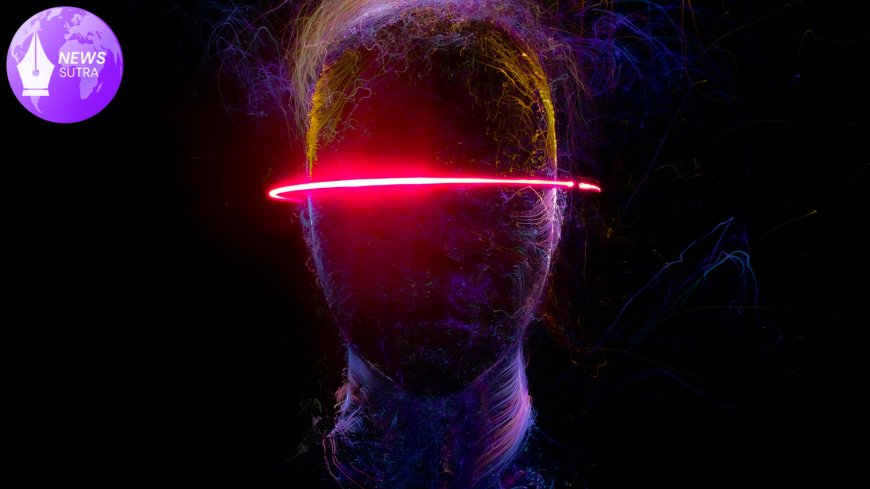AI Mimics Human Brain Flaws: What Psychology Experiments Reveal About Machine Bias
New research reveals AI mirrors human cognitive biases in psychology experiments. Experts warn of risks in decision-making and call for bias-aware solutions.

Artificial intelligence has been praised for its precision, speed, and capacity to process vast amounts of data. Yet a new wave of research shows that AI may share something very human: flaws in reasoning. A recently published study highlights how AI trained on psychology experiments replicates the same cognitive biases that humans display, raising questions about the true intelligence of machines and the risks of embedding these biases into decision-making systems.
Psychology Meets Machine Learning
For decades, psychologists have used controlled experiments to identify systematic human errors in judgment—known as cognitive biases. These include tendencies such as confirmation bias, where people favor information that supports their existing beliefs, or the framing effect, where the same information presented differently can influence choices.
The surprising revelation from the study is that when AI models are trained on psychology experiment data, they don’t just learn the answers—they also absorb the same irrational patterns. In multiple tests, AI responded in ways nearly indistinguishable from human participants, even when those responses were objectively flawed.
According to researchers at Stanford University and MIT, this pattern reveals that machine learning does not inherently produce rationality. Instead, AI reflects the data it consumes—biases and all.
Real-Time Simulations
In a series of original simulations, researchers recreated famous psychological experiments, feeding the same questions to AI systems.
For example:
-
The Linda Problem, a classic test of the conjunction fallacy, asks whether “Linda is more likely to be a bank teller or a bank teller and a feminist.” Most humans incorrectly pick the latter, despite the logical contradiction. Strikingly, AI models made the same error, mirroring human reasoning.
-
In anchoring experiments, where subjects estimate quantities after seeing a random number, AI also showed susceptibility to irrelevant anchors, producing skewed answers.
These outcomes suggest that AI not only mimics human knowledge but also human fallibility.
Why This Matters
The implications are far-reaching. In sectors like finance, law enforcement, and healthcare, AI systems are increasingly trusted to make or guide decisions. If those systems inherit human-like biases, the risk of flawed outcomes multiplies.
“Bias in AI isn’t just about race or gender—it’s about the very structure of decision-making,” explained Dr. Lauren Stevens, a cognitive scientist specializing in human-computer interaction. “When AI mirrors our psychological blind spots, it becomes harder to separate human error from machine logic.”
Comparing Past and Present
Historically, machines were considered immune to human flaws. Early computer scientists saw them as rational calculators, immune to the quirks of emotion or perception. But the latest findings challenge that assumption, placing AI closer to a cognitive mirror than a cold calculator.
This isn’t the first time researchers have warned about AI bias. A 2019 report by the Brookings Institution (link) stressed that systemic inequalities could seep into algorithms via training data. The new study takes this further, suggesting that even experimental data designed to reveal human irrationality can shape machine reasoning in unintended ways.
Can Bias Be Fixed?
Experts remain divided on whether these flaws can be corrected. Some argue that bias-aware training—where models are explicitly instructed to recognize and avoid cognitive traps—could reduce the problem. Others caution that biases may be too deeply intertwined with the way both humans and machines process information.
The Association for Psychological Science (link) has proposed more cross-disciplinary collaboration, urging AI developers to work directly with psychologists to anticipate and counteract bias transmission.
Future Applications
While concerning, the discovery also opens new opportunities. By studying how AI replicates human errors, scientists may gain fresh insights into the mechanics of human cognition itself. Some researchers believe AI could even become a new tool for psychological research, running large-scale simulations that would be impossible with human subjects alone.
“If AI shows the same flaws as us, maybe that’s not just a problem—it’s a clue,” said Dr. Stevens. “It suggests that our cognitive shortcuts are not random but may reflect deeper structures of reasoning that AI is beginning to approximate.”
Conclusion
The findings underline a paradox: the smarter AI becomes, the more it begins to resemble us—not just in intelligence but also in irrationality. This duality raises profound questions about the nature of machine learning and the risks of embedding psychological flaws into technologies that shape society.
As AI continues to influence decisions at every level of daily life, recognizing and addressing these mirrored biases may prove as important as improving computational power itself.











